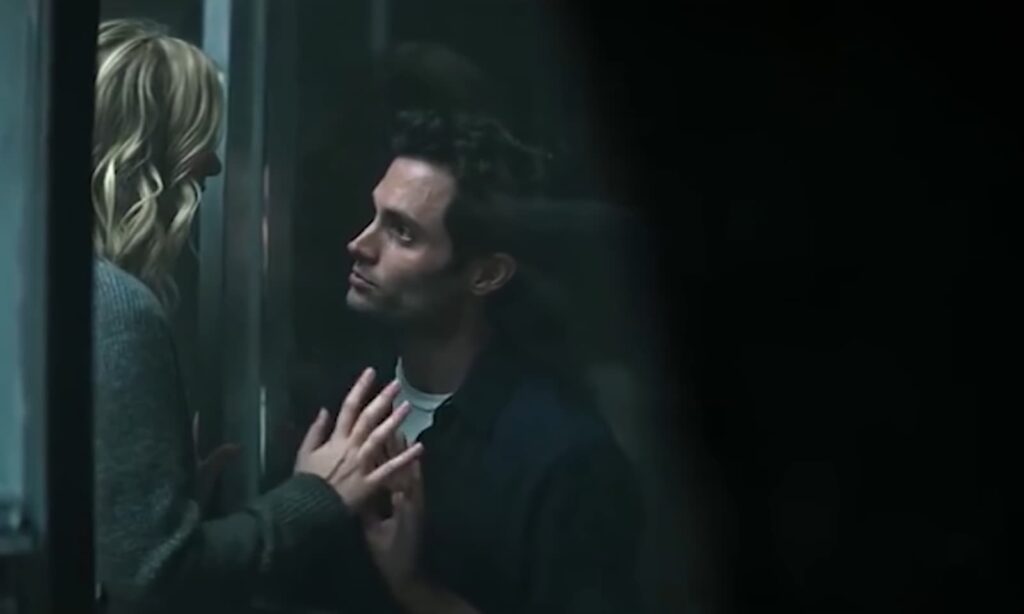
Ever since its debut on Netflix in 2018, the gripping series “You” has captivated audiences with its chilling narrative. Centered around Joe Goldberg, a bookstore manager consumed by obsession for a woman named Beck, the show delves into the depths of dark psychology and extreme actions. But amidst the thrills and suspense, many viewers have questioned: Could “You” be inspired by real-life events?
In this exploration, we’ll delve into the mystery surrounding the show’s origins and present eight intriguing facts to help decipher whether “You” is grounded in reality or purely fictional.
The Fictional World of ‘You’: Themes, Inspiration, Impact

- Fact 1: The Origin of “You”: Caroline Kepnes penned the novel “You” in 2014, serving as the foundation for the Netflix adaptation released four years later. Although a work of fiction, the book’s narrative is not tethered to any specific true event or individual;
- Fact 2: Drawing from Reality: Author Caroline Kepnes admits to weaving elements of real-life experiences and observations into the character of Joe Goldberg. However, she firmly asserts that Joe remains a creation of fiction, not a depiction of any singular person;
- Fact 3: Fictional Thrills: Creators Greg Berlanti and Sera Gamble affirm that “You” is a psychological thriller intended for entertainment, distinct from true crime narratives. The series aims to captivate audiences with its suspenseful storytelling rather than portray factual events;
- Fact 4: Impactful Discussions: Despite its fictional nature, “You” prompts discussions on the perils of social media and the manipulation prevalent in online interactions. Themes of obsession and stalking resonate with audiences who’ve encountered similar scenarios in reality;
- Fact 5: Fictional Portrayals: While comparisons between Joe Goldberg and real-life figures like Ted Bundy and Dennis Rader exist due to shared behaviors, it’s crucial to recognize Joe as a fictional construct, not a direct representation of any specific individual;
- Fact 6: Continued Exploration: The success of “You” spawns a second season, delving deeper into Joe’s complex psyche and his morally ambiguous actions. The show garners devoted followers and acclaim for its compelling narrative and multifaceted characters;
- Fact 7: Raising Awareness: Despite its fictional premise, “You” sheds light on stalking issues and underscores the importance of establishing healthy boundaries in relationships. It serves as a cautionary narrative, highlighting the dangers of unchecked obsession in the pursuit of affection;
- Fact 8: Enjoying Fictional Escapades: Ultimately, “You” offers viewers a thrilling and thought-provoking journey into a fictional realm. While it may draw inspiration from reality, it remains a work of fiction designed to entertain and provoke contemplation, urging audiences to immerse themselves in its suspenseful drama responsibly.
Unveiling “You”: Common Inquiries Answered

Now that we’ve clarified the origins of “You” and its departure from true events, let’s delve into some frequently asked questions that viewers might have about the show:
Joe Goldberg exists solely within the pages of author Caroline Kepnes’s novel “You,” crafted as a fictional creation rather than a living individual.
While “You” may weave threads of reality into its narrative tapestry, it remains firmly grounded in fiction, drawing from a spectrum of experiences rather than any singular true story.
In “You,” stalking is depicted in a heightened and dramatic manner, tailored for entertainment. However, it’s crucial to recognize the gravity of real-life stalking, a perilous crime with far-reaching consequences.
While no direct evidence links the show to tangible real-life occurrences, “You” has stimulated dialogues concerning stalking and the hazards of obsession, prompting a deeper societal examination of these issues.
Indeed, fans can anticipate the arrival of a third season of “You,” currently in the stages of production.
Acknowledging the sensitivity of the subject matter, the creators remain committed to handling the depiction of stalking with care and nuance, aiming for a thought-provoking portrayal.
While instances of stalking and obsession exist in reality, the events portrayed in the show are purely fictional and should not be construed as reflections of any specific individual or scenario.
“You” serves as a multifaceted exploration of themes such as love, obsession, and deceit, ultimately acting as a cautionary narrative on the hazards inherent in toxic relationships.
Joe Goldberg has elicited varied reactions among viewers, with some finding empathy in his character while others condemn his actions and motivations.
Setting itself apart through its distinctive narrative structure, rich character development, and the exploration of contemporary technology, “You” offers a fresh and immersive take on the psychological thriller landscape.
“You” delves into the intricate dynamics of privacy and personal boundaries, highlighting the repercussions of technological intrusion and the challenges of navigating the blurred lines between public and private spheres.
Fans of the series can indulge in a treasure trove of hidden references and Easter eggs strategically scattered throughout the show, providing a rewarding experience for those keen on decoding the intricacies of its narrative.
In its exploration of characters’ actions, “You” intricately delves into the underlying psychological factors driving their behaviors, shedding light on the ramifications of trauma and mental health struggles.
With commendations for its compelling writing, stellar performances, and riveting narrative, “You” has garnered widespread praise from critics, contributing to its positive reception.
Evolving into a cultural sensation, “You” has sparked fervent discussions among fans, who engage in speculation, character analysis, and creative expression through fan art and fiction, cementing its status as a cultural touchstone.
As the series progresses, viewers can anticipate a continuation of its signature blend of twists, revelations, and gripping storytelling, promising further exploration into the enigmatic realm inhabited by Joe Goldberg.
Conclusion
In summary, although “You” doesn’t draw from real-life events, its enthralling narrative and intricate characters have entranced audiences. Acting as a cautionary narrative, it highlights the hazards of obsession and the intricate interplay between love and control. As viewers delve into the fate of Joe Goldberg and his tumultuous relationships, it’s evident that “You” has made a profound mark on television and popular culture.
The character Joe Goldberg from the series “You” highlights the risks of uncontrolled obsession and extreme actions taken under the guise of love, as noted by a psychology professional. A criminology expert points out that, although fictional, “You” reflects the genuine concerns of stalking and the psychological reasons behind such actions. A media studies professional mentions that the series’ success demonstrates the role of storytelling in addressing complex and contentious issues, along with its societal impact. A social psychology expert observes that Joe Goldberg prompts viewers to examine their views on love, relationships, and human nature’s shadowy sides. Despite being a fictional story, “You” has significantly influenced viewers and spurred discussions on complex topics, underscoring storytelling’s influence in modern media.